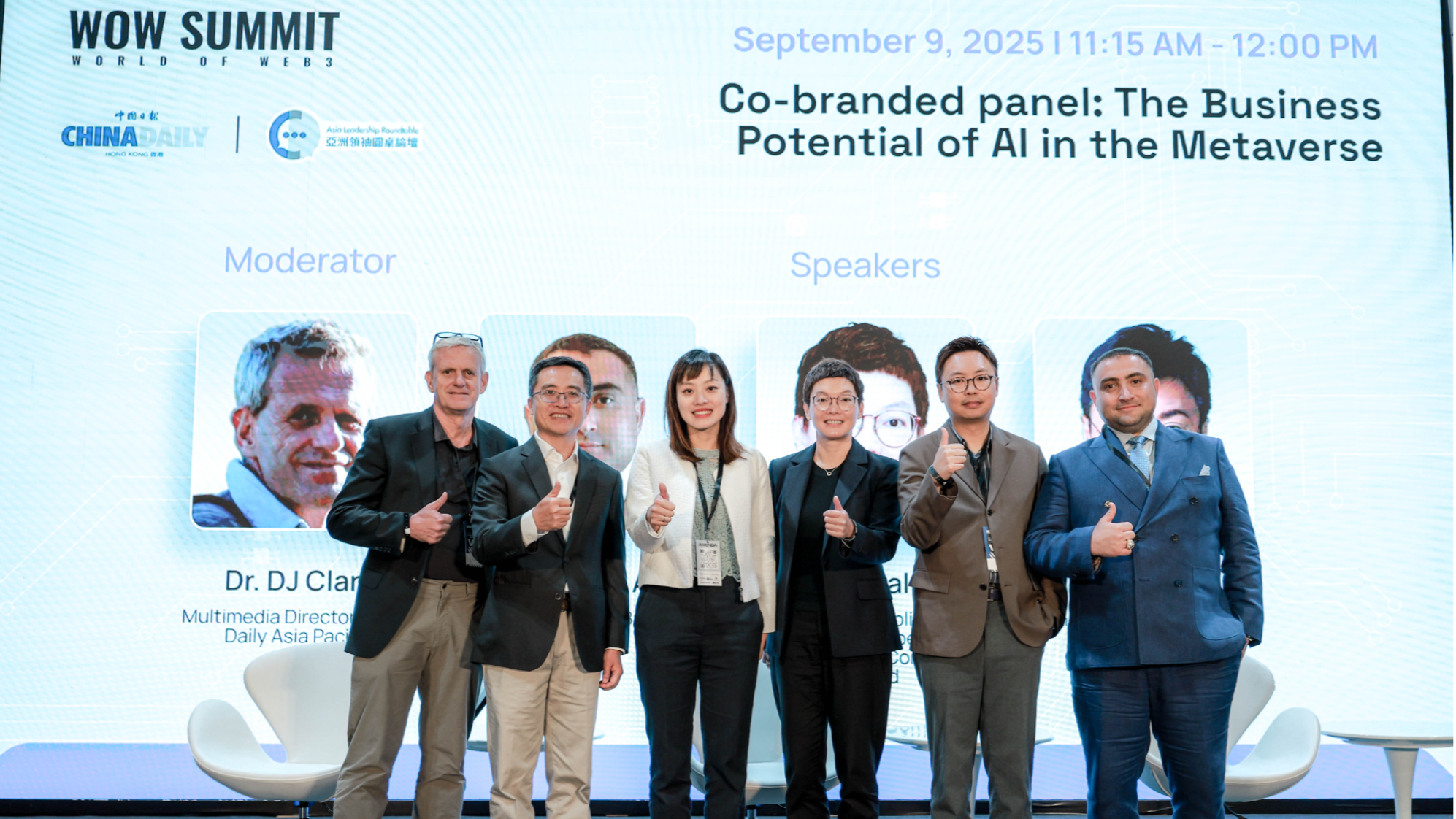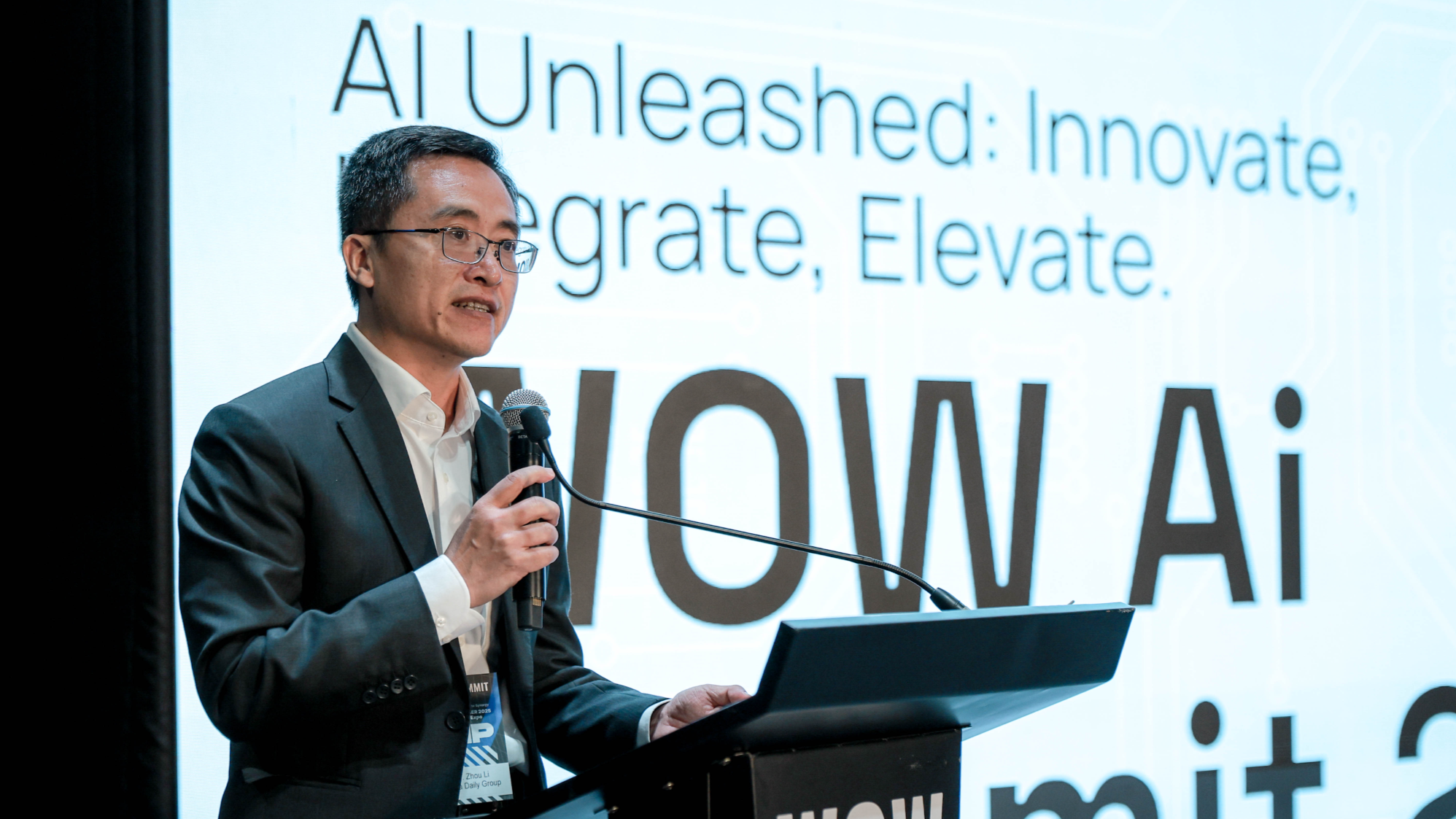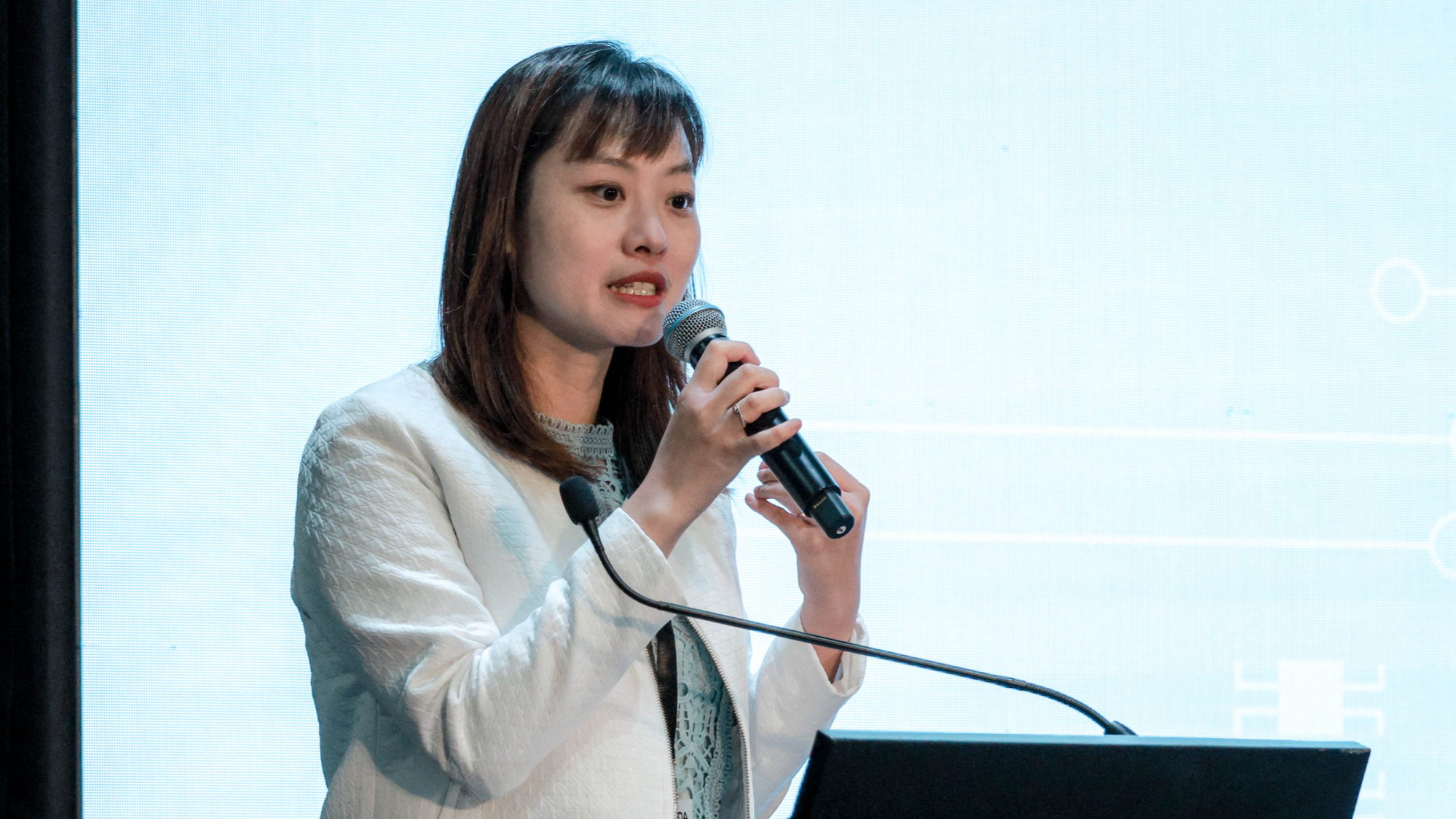
As artificial intelligence (AI) unlocks new business boundaries across industries, some sort of governance is needed to facilitate business interactions in the shared digital space, panelists said at the Asia Leadership Roundtable of China Daily Hong Kong, held on Tuesday.
Themed “Business Potential of AI in the Metaverse”, the roundtable was co-organized by the WOW Summit 2025 and China Daily Hong Kong to discuss investment trends, ethical considerations and the evolving landscape of AI-powered economies in virtual worlds that spans across AI, fintech, robotics, digital art, gaming and decentralized finance.
WOW Summit 2025 is supported by the investment promotion agency of the government of Hong Kong Special Administrative Region-- Invest Hong Kong, and Hong Kong Tourism Board, that is estimated to attract over 5,000 attendees, including top companies, global investors and leading experts from over 30 countries.
READ MORE: Metaverse a next step in human spatial expansion

Zhou Li, deputy editor-in-chief of China Daily Group, publisher and editor-in-chief of China Daily Hong Kong and chairman of Asia Leadership Roundtable, said “The AI synergy is already revolutionizing retail with virtual commerce, transforming changes through realistic simulations, and creating new data-driven economies in virtual spaces.”
“For Hong Kong as a global finance, trade and logistics hub, this is more than theory. It is a real opportunity for the city and the Guangdong-Hong Kong-Macao Greater Bay Area (GBA). How can AI shape our industry? The next wave of innovation is done here,” Zhou added.

The government of Hong Kong Special Administrative Region has implemented a series of initiatives to support integrating artificial intelligence into Hong Kong’s core industries, as well as developing the Web3 industry, with the primary objective of enhancing research and development in AI through accelerating progress in AI and robotics technologies, Under Secretary for Innovation, Technology and Industry Lillian Cheong Man-lei said in her keynote address at the roundtable.
“We have further earmarked HK$1 billion ($128 million) to establish the Hong Kong AI R&D Institute to be established next year, for facilitating upstream research and development, midstream and downstream transformation of R&D outcomes, and to expand application scenarios,” Cheong said.
The Hong Kong Generative AI Research and Development Center successfully launched its homegrown AI large language model in February, facilitating the integration of the LLM into a generative AI document processing copilot application, which has been widely adopted for trial use within the government.
On the AI digital infrastructure front, Cyberport’s AI Supercomputing Center, which is one of the largest in the region, commenced operation in December 2024. The government has launched a HK$3 billion AI Subsidy Scheme to subsidize local institutions, R&D centers and enterprises to advance AI research and applications.
For Web3, the government allocated HK$50 million to Hong Kong Cyberport in 2023 to expedite the development of the Web3 ecosystem through launching proof-of-concept and pilot subsidy schemes. Now, Cyberport has gathered over 290 related enterprises, including three unicorns.
“Hong Kong presents unlimited opportunities in the realm of AI, the metaverse and Web3, and we encourage you to join us as we strive to develop Hong Kong into an international innovation and technology center,” Cheong said.

Artificial intelligence sits at the heart of Hong Kong’s ambition to become the world-leading innovation and technological hub, said Crystal Fok Lo-ming, director of AI applications at Hong Kong Cyberport Management Co, adding that the city is “in the right timing” to push forward with intellectual property trading.
Over the past few years, Fok said, content generation has been a pain point for the metaverse’s development. But as technical possibilities mature, “all this content is becoming intellectual property in the near future”. This makes IP trading a great business opportunity not only for the IP itself, but also for the financial system, the stablecoins, and the real-world assets, benefiting the whole economy and deserving of special attention from Hong Kong policymakers, she said.

Ken Ip Man-hon, chairman of the Asia MarTech Society, sees Hong Kong’s events economy and smart tourism goals as being “in the right position to benefit from” the metaverse.
As a convergence of virtual, augmented and physical reality, Ip said the metaverse offers overseas tourists the elevated experience of previewing historical landmarks or virtual galleries before booking their flights. “The technology helps position Hong Kong as a tourist destination beyond geographical limits. We now expand our global reach on a much broader scale.”
Despite all the fascination and hype, there remains much work to be done. Fok cautioned that the idea of decentralization has still been largely unfulfilled. “Technically, interoperability has yet to be realized. Even with a single ID, it does not mean all these platforms can communicate with each other,” she said. Fok likened the situation to the mobile phone ecosystem, Apple and Android — two dominant systems, each powerful in its own right, yet fundamentally separate.
Besides interoperability, scalability also remains a hurdle. Ip highlighted the current lack of online infrastructure that would be capable of sustaining billions of people using the metaverse on a daily basis.
All the panelists agreed that the virtual universe — where users interact in a shared digital space — cannot function without some sort of governance.
READ MORE: Metaverse offers ample chances for mainland, HK
“The irony is that Web3 and the metaverse began with promises of decentralization, transparency and social good. But the reality is decentralization without accountability can lead to chaos — and that is exactly what we are seeing now,” Ip said. He urged a balanced approach between decentralization and governance, with verifiable identities as a possible good start.

Mete Al, co-founder of ICB Labs, sees a pressing need for regulation. “The government now has their own rules on digital assets. In the virtual world, we need other new types of rules and regulations.” He highlighted copyright issues, saying that the metaverse — because of its decentralized and boundaryless nature — presents unique challenges to traditional copyright frameworks.
According to the co-founder, issues of ownership, counterfeit goods, and infringements are rising concerns, threatening the sustainability of creativity in the metaverse. Addressing these challenges is critical for fostering trust and ensuring fair practices in this burgeoning ecosystem.


